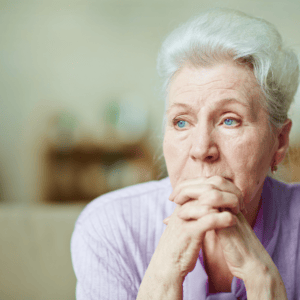World Mental Health Day is October 10, 2020
Every year on October 10th, the world comes together to honor World Mental Health Day. World Mental Health Day brings awareness to mental health education and helps to ensure those struggling with mental health that they can live better lives. According to the Center of Disease Control (CDC), over 20% of adults over the age of 55 have had a mental health concern throughout their life. However, only two out of three receive treatment. While mental illness may be overlooked for elders, it can greatly affect their overall health and well-being. Visit Angels of Medical Care, if you’re looking for a doctor.
4 Common Mental Health Disorders Found in Elder Adults
While the topic of mental health has increasingly become a part of the conversation for teens and young adults, it is equally important that the mental wellness of our elder loved ones is not overlooked. Four of the most common types of mental health disorders found in the elderly are:

- Depression. – As we age, it becomes harder to socialize with others and it can leave us feeling lonely. Depression is a kind of mood disorder that ranks as the most common mental health concern in older adults. Common symptoms of depression include ongoing feelings of sadness, problems sleeping and distancing yourself from activities you previously enjoyed. Seniors who may be suffering from depression or have strong feelings of loneliness and sadness should seek help immediately.
- Bipolar Disorder. – Bipolar disorders are frequently misdiagnosed in senior citizens. The symptoms are similar to both the aging process and may also overlap with symptoms of dementia such as Alzheimer’s disease. Furthermore, some medications may have side effects that can cause bipolar disorders. To determine if you or your loved one may suffer from bipolar depression and for the best treatment options, please speak to your doctor.
- Anxiety Disorder. – Similar to depression, anxiety is a very common mood disorder found in older adults. According to the CDC, nearly half of older adults with anxiety also experience depression. While there are several types of anxiety disorders, the most common is Generalized Anxiety Disorder. Some of the effects found in Generalized Anxiety Disorder include persistent worry or fear which can get worse over time. These symptoms can interfere with socialization and day-to-day activities which can make seniors feel withdrawn. For more information on the different kinds of anxiety disorders, please visit the U.S. Department of Health and Human Services.
- Eating Disorder. – Recently, bulimia and anorexia nervosa have become more common among seniors. The underlying behavior or psychological issues that cause eating disorders can be undetected for quite some time, making it extremely difficult and dangerous to diagnose. As our loved ones continue aging, they may face challenges such as digestive issues, medications, or other health problems that can affect their eating habits. It is important to take your loved one to the doctor right away if you notice a change in their eating habits.
It can be difficult to completely determine whether your loved one may be struggling with mental illness. The following are some signs that may indicate if your loved one is suffering from a mental health concern:
- Frequent sadness.
- Trouble falling asleep.
- Sleeping too much.
- Decreased socialization.
- Excessive worry.
- Feeling of worthlessness and of helplessness.
- Changes in appetite.
- Trouble focusing or remembering.
For World Mental Health Day, let us continue bringing awareness to mental health issues such as depression and anxiety by educating the public and providing support to our loved ones. If you or a loved one may be struggling with mental health but are not sure who to reach out to, please consider reaching out to the Substance Abuse and Mental Health Services Administration helpline by calling 1(800)-662-HELP (4357).
When the time comes to consider an in-home nursing care service for your loved one, please contact 24/7 Nursing Care to care for all of your loved one’s needs. We offer have in-home nurse placement psychiatric care services that can assist your loved one who may struggle with mental health. Call our Miami-Dade office at (786) 518-3622 or our Broward office at (954) 949-1332 for a free consultation. When you can’t be left alone, invite us into your home.®



